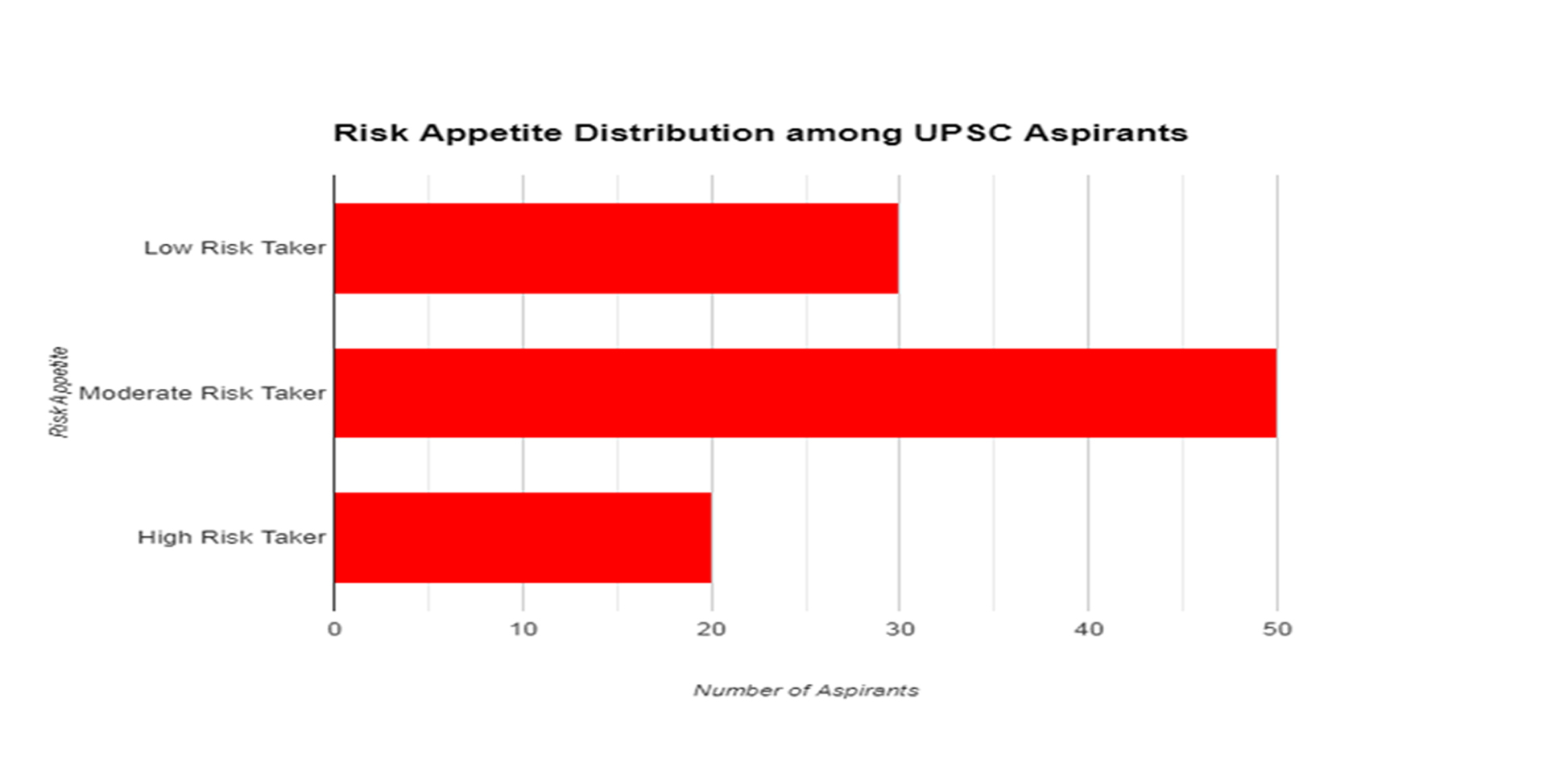Risk Appetite: The Responsible Adventurer
Risk Appetite and its Importance in UPSC Exam Preparation
Risk appetite refers to an individual's willingness to take chances or embrace uncertainty to achieve a desired outcome. In the context of UPSC exam preparation, it plays a crucial role in shaping an aspirant's decision-making, strategy, and overall performance.
Different Risk Appetites in UPSC Aspirants:
Low-Risk Takers (Risk Aversion): These aspirants prioritize stability and prefer a conservative approach. They focus on thorough preparation, sticking to conventional methods, and avoiding experimentation.
High-Risk Takers: These aspirants are more adventurous and willing to experiment with unconventional strategies. They embrace challenges, seek out new information, and are not afraid to take calculated risks.
Acceptable Range (Moderate Risk Takers): This group strikes a balance between risk aversion and risk-taking. They are open to calculated risks, willing to adapt their strategies, and embrace new ideas while maintaining a foundation of solid preparation.
The Importance of Appropriate Risk-Taking in UPSC Exam Preparation:
In the UPSC exam, where uncertainty is inherent, a moderate risk appetite often proves to be the most beneficial. It allows for a balanced approach that combines thorough preparation with the flexibility to adapt and innovate.
Choice of Optional Subject: A moderate risk-taker might consider a less popular optional subject that aligns with their interests and strengths, potentially offering a competitive advantage.
Answer Writing Style: These aspirants strive for a balance between providing safe and structured answers while incorporating unique insights and perspectives.
Time Management: Moderate risk-takers strategically allocate time to challenging topics while ensuring adequate coverage of the entire syllabus.
Exam Strategy: They strike a balance between attempting a sufficient number of questions to maximize their score while avoiding excessive risk-taking that could lead to negative marking.
Graph: Risk Appetite Spectrum in UPSC Aspirants

The graph demonstrates the varying risk appetites among UPSC aspirants, with the majority falling within the acceptable range. While a few lean towards extreme risk aversion or risk-taking, the optimal approach lies in finding a balance.
Understanding and managing your risk appetite is crucial for tailoring your preparation strategy and maximizing your chances of success in the UPSC examination. By embracing calculated risks, remaining adaptable, and building a strong foundation, aspirants can navigate the uncertainties of the exam and achieve their goals.
Assess Your Risk Appetite for UPSC Preparation
Are you ready to embark on your UPSC journey? Understanding your risk appetite is crucial for tailoring a preparation strategy that maximizes your chances of success.
Take Our Free Counseling to know more:
Discover your risk profile and gain valuable insights into how it impacts your study habits, decision-making, and overall approach to the UPSC exam.
Benefits of Knowing Your Risk Appetite:
Personalized Study Plan: Design a preparation plan that aligns with your risk tolerance and learning style.
Informed Decision-Making: Make strategic choices about optional subjects, resources, and time management.
Optimized Exam Strategy: Develop a test-taking approach that maximizes your strengths and minimizes your weaknesses.
Increased Confidence: Approach the UPSC exam with a clear understanding of your risk profile and how to leverage it. Approach the UPSC exam with a clear understanding of your risk profile and how to leverage it.
Don't leave your UPSC success to chance. Take the first step towards a personalized and effective preparation strategy.